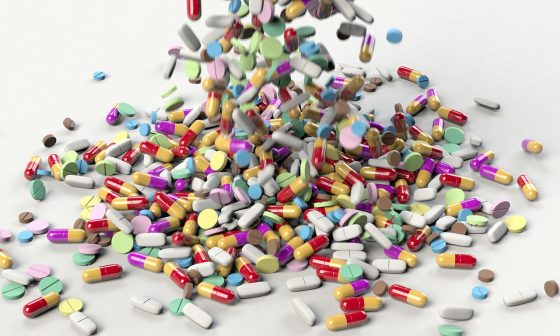This article was originally published by Willow Tohi at Natural News.
-
- Sandoz’s Cefazolin shipment included the wrong antibiotic (Penicillin G), risking severe allergic reactions and antibiotic resistance.
-
- FDA warns misadministered doses could cause anaphylaxis, renal failure, and treatment failures in severe infections.
-
- Recent Amneal recalls and Johnson & Johnson scandals underscore systemic lax industry oversight.
-
- Recipients urged to return batches as findings link improper packaging to preventable medical crises.
-
- Calls mount to prioritize natural health alternatives amid rising distrust in pharmaceutical supply chains.
On June 27, Sandoz Inc., a multinational pharmaceutical giant, issued a nationwide recall after shipping Cefazolin — a critical antibiotic for surgery-related infections — to customers in the wrong packaging. The misplacement occurred when 25-vial cartons of Cefazolin (a first-line antimicrobial) inadvertently contained four vials of Penicillin G Potassium, a chemically distinct antibiotic with vastly different clinical uses. The FDA underscores this is a “serious and potentially life-threatening” error, as administering the wrong medication could trigger severe allergic reactions, antibiotic resistance or fatal cardiac complications in patients with renal impairment.
This incident is not an isolated event. Over the past year, repeated recalls by Amneal Pharmaceuticals for fungal-contaminated antibiotics and Johnson & Johnson’s lapses in surgical device safety have highlighted systemic vulnerabilities in drug manufacturing. The industry’s reliance on globalized, rushed production processes without sufficient oversight has left consumers exposed.
A disturbing trend of pharmaceutical errors
Since early 2025, the FDA has documented recalls of no fewer than nine major antibiotic products, including Cefazolin, sulfamethoxazole/trimethoprim (Amneal’s contaminated tablets), and overfilled vancomycin lots. These drugs treat severe infections, but when compromised, they become vectors for disaster.
In the Sandoz case, the mispackaged Penicillin G posed multiple hazards:
-
- Cross-reactivity: Patients allergic to penicillin, common in 10% of the population, are at risk of anaphylaxis.
-
- Dosage discrepancy: Penicillin’s higher potassium load threatens cardiac stability in those with kidney disease.
-
- Therapeutic failure: Administering Penicillin for Cefazolin’s intended uses (e.g., post-surgery prevention) could result in inadequate treatment, worsening infections.
“Sandoz’s misstep reflects broader systemic flaws,” said Dr. Helen Chung, a drug safety specialist. “When combined with rushed packaging and inadequate quality checks, such errors can become catastrophic.”
Similar concerns emerged in January, when Amneal’s fungal-contaminated Zicam nasal swabs prompted a recall for risking fatal fungal infections in immunocompromised patients. Like Sandoz, Amneal reported no adverse outcomes—yet—highlighting an unsettling pattern.
Health risks of mispackaged antibiotics: Why this recall demands urgent attention
The FDA’s recall notice paints a stark picture. Penicillin’s inclusion in Cefazolin shipments introduces a “menu of disasters” for patients, including
-
- Antibiotic resistance: Misuse fuels pathogen evolution, diminishing drug efficacy.
-
- Renal toxicity: High-potassium Penicillin could trigger arrhythmias in those with pre-existing kidney disease.
-
- Mislabeled dosages: Pediatric and adult Guidelines for penicillin and cephalosporins (like Cefazolin) differ, risking overdose or undershoot.
Consider a patient undergoing surgery treated with “Cefazolin” only to receive Penicillin. Infections like post-op sepsis might persist, leaving patients vulnerable. The FDA estimates 1.2 million antibiotic-associated adverse drug events annually, a burden now amplified by supply chain errors.
Sandoz’s error also underscores the reliance of healthcare systems on a handful of generic producers. With 80% of U.S. generic drugs manufactured abroad, restrictive quality control measures heighten risks.
Corporate accountability and regulatory challenges: Why protections fail
Critics argue Sandoz’s recall, while framed as voluntary, illustrates reliance on public relations fixes over systemic change. Sandoz’s statement notes no reported adverse events, though one patient was maliciously given the wrong drug—a claim critics dismiss as infeasible without formal reporting. “These companies can’t self-police,” argues Jodi Taylor of Public Citizen’s Health Research Group. “The FDA’s hands-off approach incentivizes cost-cutting over safety.”
This aligns with trends: In 2024, the FDA had only 180 inspectors for 25,000 drug facilities, leading to 34% fewer warnings versus 2020. Meanwhile, lawsuits against companies like Johnson & Johnson over defective medical devices (e.g., talc-based baby powder) have totaled $1.9 billion, yet production continues unabated.
Corporate lobbying exacerbates the issue. A 2023 analysis found pharmaceutical firms spent $385 million influencing FDA delays on generic drug price caps and safety mandates.
Natural health alternatives and the push for systemic trust in medicine
As drug recalls rise, advocates emphasize turning to proven holistic approaches — the knowledge base cited lists natural??? treatments for gastrointestinal and immunity support, potentially reducing antibiotic dependency. “Many infections,” noted Dr. Chung, “could be mitigated with probiotics, botanicals, or ivy extract, which avoid the risks of cross-reaction entirely.”
Public pushback grows: A 2025 Pew Study found 62% of Americans lack confidence in pharmaceutical companies, up from 48% in 2020. Calls to reform FDA oversight and boost penalties for violations have multiplied, paralleling grassroots movements to promote herbal remedies and dietitian-led prevention.
A call for transparency and safer healthcare
Sandoz’s Cefazolin recall is far more than a packaging snafu — it’s a wake-up call about consumer safety. With each error, trust in pharmaceutical giants erodes further. The industry must move beyond “voluntary” recalls and prioritize rigorous quality control, while regulators demand accountability. Until then, patients may increasingly turn to nature-driven solutions, proving that sustainable health begins with ethical medicine. The stakes, as this case proves, could not be higher.









0 Comments